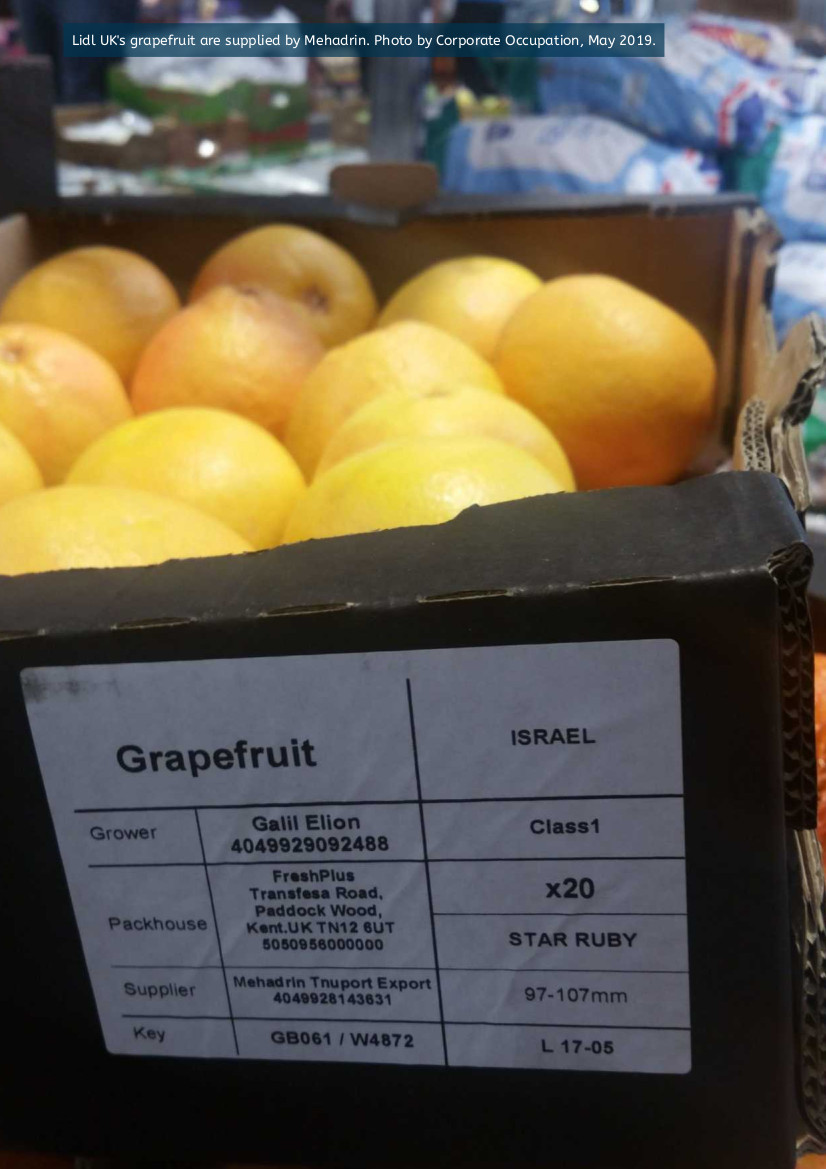Corporate Watch’s new project, ‘mapping the arms trade’, will map the physical locations of arms companies across the UK and examine the UK arms industry. It will also be necessary to unravel the web of contradictory government statements and figures about the arms trade through which the state gives an impression of control on arms exports. In this first article, Corporate Watch focuses on UK arms sales to Israel. This week the press variously celebrated and bemoaned the UK refusal of a few export licenses for components for Saar gunships to Israel. The Jerusalem Post claimed that Britain had blocked a ‘third of all arms exports to Israel this year’ while the Daily Mail ‘accused’ Miliband of imposing a partial embargo on Israel and claimed, falsely, that Miliband ‘decided to revoke all arms export licenses to Tel Aviv following the (Gaza) offensive’. In fact the government had revoked five, out of 182, existing licenses to Israel.
When it comes to the issue of arms sales to Israel the British government likes to try to position itself on both sides of the fence. Or, put another way, likes to try to convince thepublic that arms to Israel are restricted while allowing the arms industry freedom to export exactly what they want. Since the invasion of Gaza during January 2009, where Israel presented the world with a catalogue of war crimes enabled by a plentiful supply of foreign weapons, the UK’s exports to Israel have come under increased scrutiny. In January hundreds of thousands of people took to the streets, trashed businesses linked to the occupation and pelted the Israeli embassy with shoes.
In actions throughout January solidarity activists caused hundreds of thousands of pounds worth of damage to EDO MBM/ITT in Brighton, blockaded BAE systems in Newcastle, demonstrated outside UAV engines in Lichfield and occupied the roof of Raytheon in Bristol for over five weeks. In February Amnesty International reported that components from UAV engines in Lichfield had probably been utilised in Israeli drones during the bombing of Gaza and that an arms embargo should be imposed against Israel. The result of this public resistance and general outcry over arms to Israel is that the government, at first, responded by saying it could not be sure that British weapons were not used during the Gaza bombardment. Then, in April, David Miliband admitted that British weapons had, in fact, without doubt been used in Gaza, predominantly, he said, in Israeli F-16s, Apache helicopters and Saar gunships . All but the latter were exported to the US and re-exported to Israel. The government promised to review all extant export licences to Israel in the light of the ‘new situation’ after Operation Cast Lead. Miliband said, in April, that “I can confirm that we are looking at all licenses to see whether there is any need for reconsideration in the light of recent events in Gaza,” In July the Foreign Office announced that, as a result of this increased scrutiny, it had reviewed its export licenses to Israel and had disallowed five licenses on the ground that they could be used for ‘repression’. These were the licenses relating to the Saar Courvette gunship, the only weapon directly exported to Israel that Miliband had admitted that Israel used in Gaza.
The corporate media, whatever side of the fence they may be on, have sought to make much of these license refusals as a step toward further control of, or an embargo on, arms to Israel. It is worth noting that this facade is what the government wanted to achieve. The state’s policy on arming Israel in the last ten years has been simple; to allow as much as possible, the unfettered export of weapons components bound for Israel from British companies and, in the face of growing public opposition and resistance, to create the false impression that arms exports are subject to strict controls. After the public bouts of resistance in 2002, following the Israeli invasion of the West Bank and Gaza and crushing of the Palestinian authority, Jack Straw tightened controls on direct exports but not on parts being exported via the US. After the far more effective resistance to the Israeli invasion of Lebanon of 2006, where a citizens decommissioning took place at Raytheon in Derry and break ins occurred at bases where US planes were refueling en route to take arms to Israel, the government imposed stricter restrictions on export of components for the F-16. However, actual UK arms exports to Israel are increasing steadily.
So what is exactly is being exported? The government claims that heavy weapons, such as tanks, warships and artillery have not been granted export licenses to Israel since 1997 and according to Bill Rammell, no license for a ‘whole item’ (that is, presumably, a whole weapon) has been approved since 2002. Perhaps this is why British companies have become so prominent in the manufacture of electrical weapons components. One such company EDO MBM/ITT who manufacture circuit boards, arming units and bomb racks designed specifically for use with the Israeli F-16 bomb carriage, the VER-2 have been subject to a relentless direct action campaign in Brighton (see www.smashedo.org.uk). As a result of the campaign the company has become symbolic of an industry that, as one campaigner put it, makes ‘the nuts and bolts and bits and bobs that make weapons work’. Amnesty International, in their report, Fueling Conflict, state that ‘the introduction in 2002 of revised UK guidelines for the control of exports of components for incorporation in military systems were specifically intended to allow the export of UK components to the USA for incorporation in military equipment such as F-16 combat aircraft and Apache combat helicopters which were known be exported to Israel’ but that, conveniently, ‘details contained within UK government reports do not allow for a meaningful assessment of the end-user of this equipment’ .
One smokescreen to public understanding of the issue is the lack of available information on exports. The government does not publish details of the individual products being exported or the corporations exporting them. The Department of Business, Enterprise and Regulatory Reform (DBERR) publishes details of export licenses which have been approved, refused and their value but no details on what, specifically, has been exported or by who. Another stumbling block, in terms of the possibility of public knowledge, is the unavailability of information relating to arms exports through Freedom of Information (FOI) requests. For example, FOI requests asking for information on EDO MBM/ITT’s exports to Israel have been uniformly refused and are now subject to an appeal to the information commissioner. The government, during and since the Gaza invasion, made use of the lack of public understanding about the nature of export licenses to make disingenuous statements about its exports to Israel. In January both Bill Rammell and David Miliband claimed that Britain had not granted licenses for goods associated with armoured personnel carriers, F 16s or Apache helicopters since the Israeli bombing of Lebanon in 2006. To the average observer this might suggest that no exports had occurred since 2006.
The reality is that many export licenses granted to UK companies are ‘Open Individual Export Licenses’ (OIELs) which allow the export of a category of equipment from the UK military list until the license is revoked, in theory the licenses can remain in place forever (although apparently they are usually reviewed every five years). So, to imply that the fact that no licenses had been granted since 2006 meant that arms exports to Israel were tightly controlled is a travesty, what about all the license granted before 2006 that still remain in place. Bearing in mind that OIELs still remain in place since pre-2006 and that this statement may not encompass component parts of weapons, it is necessary to look at actual export figures. In fact, according to figures quoted in Amnesty International’s recent report, Fueling Conflict, actual direct exports from the UK to Israel have increased more than tenfold since 2006. From the Export Control Organisation’s reports we can see that, licenses granted included, for example, ‘components for combat aircraft’, ‘components for military electronic equipment’, ‘components for airborne electronic warfare equipment’ and ‘components for unmanned aerial vehicles’ .
The UK’s tightening of arms control after bouts of Israeli repression is matched by a liberal flow of arms in the run up to them. In 2002, as Israel was gearing up Operation Defensive Shield, UK arms exports to Israel doubled. In 2005, the year before Israel’s attack on Lebanon which killed over a thousand people in less than a month, the UK exported £22.5 million worth of arms to Israel, twice the amount exported in 2004. In the first three quarters of 2008, prior to Israel’s attack on Gaza, Britain exported £27 million worth of arms to Israel – an unprecedented amount. It is worth saying, however, that the UK’s steps to revoke export licenses show that the government perceives a need to provide a sop to public dissent against exports to Israel. The strength of resistance in the UK, unprecedented in any other country outside the Middle-East, to the Gaza bombing and the growing movement in solidarity with Palestine has clearly disturbed the government. This can be seen, elsewhere, in DEFRA’s consideration of legality of the sale of Israeli settlement goods in the UK and in the British embassy’s cancellation of a move of its offices into a property owned by an Israeli settlement developer. The state is responding to widespread resistance to arms exports to Israel steadily imposing controls on the arms industry which they hope that companies will be able to circumvent. In turn, the arms industry has responded by moving into the market for components incorporated into US weapons bound for Israel. In that context the companies profiting the most from Israel’s war crimes may be those manufacturing ‘the bits and bobs’ that make the weapons work.
Original article at http://www.corporatewatch.org.uk/?lid=3412
Uncategorised
Apartheid in the Fields: From Occupied Palestine to UK Supermarkets (2020 Update), Endnotes
Here are the references for our 2020 update to Apartheid in the Fields P3. Introduction https://mondoweiss.net/2019/11/un-publishes-database-ofcompanies-profiting-off-human-rights-abuses-not-on-israel-but-myanmar/ P4. The ongoing ethnic cleansing of the Jordan Valley https://btselem.org/jordan_valley See, for example, https://corporateoccupation.org/2010/08/11/the-jordan-valley-meeting-point-the-jewish-national-funds-racist-alternative-reality/ https://m.btselem.org/jordan_valley http://jordanvalleysolidarity.org/reports/al-jazeera-how-israel-engages-in-water-apartheid/ http://jordanvalleysolidarity.org/reports/al-jazeera-how-israel-engages-in-water-apartheid/ http://jordanvalleysolidarity.org/news/tractors-and-water-tanks-confiscated-in-al-maleh/ http://jordanvalleysolidarity.org/wp-content/uploads/2008/03/jv%20map%20tony.jpg Read more…



0 Comments